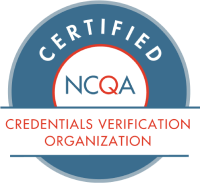On-Demand Webinar
Delegated Credentialing: What you need to know to get started
Our compliance experts Mark Hirschorn and Jamie Kates will discuss how Delegated Credentialing benefits payors and providers. You’ll learn how it works, its time and cost-saving benefits, and have a Q&A session to address any queries.
Meet Our Experts

Mark Hirschorn
VP of Compliance and NAMSS Director at Large
Since 2019, Mark has been an integral part of the Andros team, working closely with all departments to ensure compliance with the National Committee for Quality Assurance (NCQA) standards and measures. His responsibilities include providing clients with guidance and support in areas such as policy and procedure development, delegated credentialing applications, and delegated provider audits.

Jamie Kates
Senior Compliance Manager
Meet Jamie Kates, the Senior Compliance Manager at Andros. Jamie is responsible for on-going compliance throughout the organization. She leads the delegated audit programs for Andros’ clients as well as internal audits.
Want more insights?
Browse through our resources or get in touch to connect with one of our experts!

Unlock Healthcare Compliance Excellence with andros
Navigating healthcare compliance is tough. Most organizations face the risk of non-compliance, in-house expertise gaps, and inadequate policies due to inefficient credentialing workflows. Learn how Andros can help you unlock compliance excellence.

Top 3 Provider Network Management Credentialing Trends to Watch
Explore key trends in healthcare credentialing for 2024, including outsourcing to expert partners, automation technology, and enhancing the provider experience. Learn how these strategies aim to streamline processes, ensure compliance, and improve overall satisfaction for patients and providers.

Provider Network Approval & Committee Management
Streamline the credentialing process by managing the entire workflow for credentialing committee reviews, ensuring compliance with NCQA standards. This comprehensive support reduces administrative burden, ensures regulatory compliance, and enhances meeting efficiency.
